
The Rock Cycle
What are rocks made of? How are they formed? What can rocks tell us about past environments on Earth? What is the difference between sedimentary, igneous and metamorphic rocks? Find our all you need to know about rocks in our factsheet for primary school students and teachers released in 2017.
|
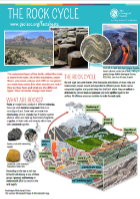 |
| |
|

Dinosaurs
You've probably heard of T. rex and Triceratops, but what exactly is a dinosaur? What do palaeontologists know about the different types of dinosaurs and why do they think they might still be around today? Find out all about dinosaurs in our factsheet for primary school students and teachers released in 2017.
|
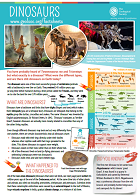 |
| |
|

Fossils
What are fossils? How do they form? Find out why scientists study fossils and what they can tell us about the ancient creatures that once lived on Earth in our factsheet for primary school students released in 2017.
|
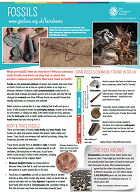 |
| |
|

Mary Anning
Mary Anning was a famous fossil hunter and collector from the 19th century. Over the course of her life she made many incredible discoveries in her home town of Lyme Regis and became famous throughout the scientific world. Find out why Mary is remembered as one of the greatest fossil hunters to have ever lived in this factsheet
|
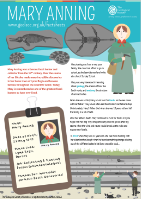 |
| |
|

Greenhouse Gases
Where do greenhouse gases come from? How is this warming period different to other periods of climate change in Earth's history?
Download the Greenhouse Gases factsheet
|
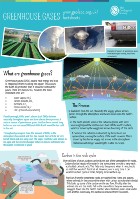 |
| |
|

Learning about geology doesn't only mean looking at what's beneath us - we can look up into space as well! Have you ever wondered what the rocks on the surface of Mars or Mercury look like? Find out with our fact sheet
Download the Rocks in Space factsheet
|
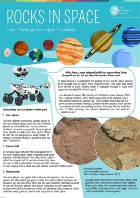 |
| |
|

What is a volcano and how do they form? Why are there different types of volcanic eruption and how can these be dangerous? Find out all you need to know about volcanoes in our factsheets for primary and secondary school students updated in 2017 to mark the Geological Society's Year of Risk.
|
 |
| |
|

How do earthquakes happen? Where are they most likely to occur? How are they measured and why are they so dangerous? Find out all you need to know about earthquakes in our factsheets for primary and secondary school students and teachers updated in 2017 to mark the Geological Society's Year of Risk.
|
 |
| |
|

What are energy resources? What's the difference between renewable and non-renewable energy and why is this important? Factsheets for primary and secondary students released in August 2018 to mark the Geological Society's Year of Resources.
|
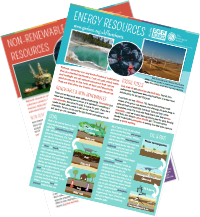 |
| |
|

Water Hardness (primary and secondary)
Have you ever noticed that tap water tastes different depending on where you are? Have you ever seen a white coating inside your kettle or the shower head, or found that the shower gel won’t lather up? All these effects are caused by differences in the ‘hardness’ of the water. Released in 2016 to support a the BBC's Terrific Scientific
|
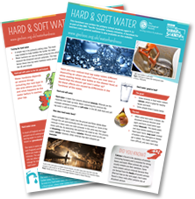 |
| |
|

Groundwater (primary and secondary)
Supplying drinking water to every tap in the UK is a huge challenge. Water hidden underground, or groundwater, is a vital part of this process in many regions, but can also cause flooding. Find out more in our factsheet, released to mark Earth Science Week 2016 and the Year of Water.
This fact sheet has two versions:
|
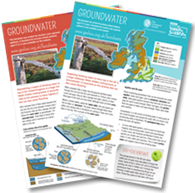 |
| |
|

Water Resources (primary and secondary)
Fresh water is needed for every part of our lives, but access to clean water is becoming increasingly difficult for millions worldwide, and responsible management of water resources is more important than ever. Find out more in our water resources factsheet, produced in 2017.
|
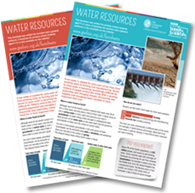
|
| |
|

Tsunamis are a devastating natural hazard that affect coastal regions all over the world. But what actually are tsunamis? What causes them? How do they get so big? Discover tsunamis in our factsheet for secondary school students and teachers released to mark the Geological Society's Year of Risk.
|
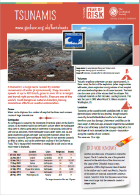 |
| |
|

Mining
How do geologists find mineral deposits, and what happens after the mines close? What is a critical metal, and where are the deepest mines on Earth? Find out how we mine and process minerals above and below ground in our mining factsheet, released in 2017.
|
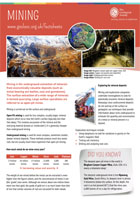 |
| |
|

Mineral Resources
Almost everything in the modern world uses minerals or their by-products in some way. Find out more in our mineral resources factsheet, released in 2017.
|
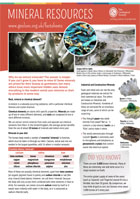 |
| |
|

UK Geoheritage
In October 2014, the Society announced its list of 100 Great Geosites. Find out more about the geoheritage of the UK and Ireland, and why we have such an amazing range of geological sites.
|
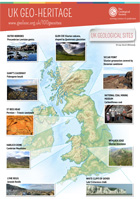 |
| |
|

William Smith
William Smith is sometimes known as ‘the father of English geology’. Find out why, and how he created his famous 1815 geological map.
|
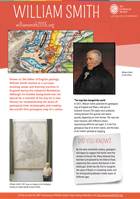
|
| |
|

Flooding
How many types of flood are there? Why does flooding happen, and how can we protect ourselves?
|
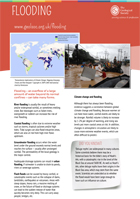
|
| |
|